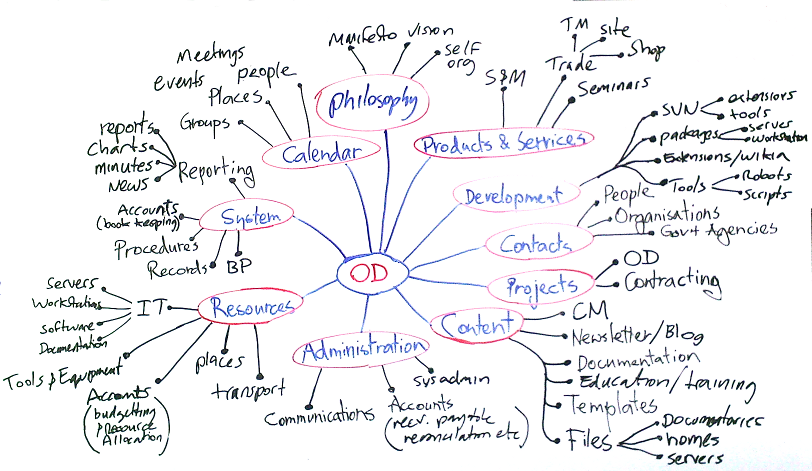Difference between revisions of "Organic Ontology"
(moved from site tree) |
({{legacy}}) |
||
| Line 1: | Line 1: | ||
| + | {{legacy}} | ||
| + | |||
== Current Organic Design Ontology == | == Current Organic Design Ontology == | ||
<html> | <html> | ||
Revision as of 22:58, 19 July 2011
Contents
Current Organic Design Ontology
This is the top level structure of information portals for Organic Design. We intend to use this structure to navigate our system and do our work. Currently this is only a snapshop of our ontology which is manually recreated in the sidebar tree. Every top level node (e.g. "Direction") represents a significant aspect of the organisation which has an information portal where related information can be accessed or created. Information portals (or simply "Portals") are usually the entry point to more fine-grained data structures such as lists of documents or records created with forms (e.g. Timesheets, Task lists, Memos, etc.). Together, the top-level ontology with the portals structure as well as the various record types and reports used by the organisation represent an increasingly complete and functional description of the system the organisation uses. This structure should be accessible through the Internet and editable through a web browser - with due process and permissions where required.
Types of templates to sync
- Created upon org set-up
- All top-level portals are categorised into the category of the organisation
- Cat-tree|Organic Design
- The OrganisationName template is a configuration template that allows the top level of the ontology, which links to the organisation home, to be set and all top-level portals to be categorised into it. The naming of the Organisation can then be performed when the wiki organisation is first set up and allows the top-level portals to be listed as members of that organisation.
2007 Ontology
See also
- Ontology - our general ontology article
- Wikipedia:Ontology









